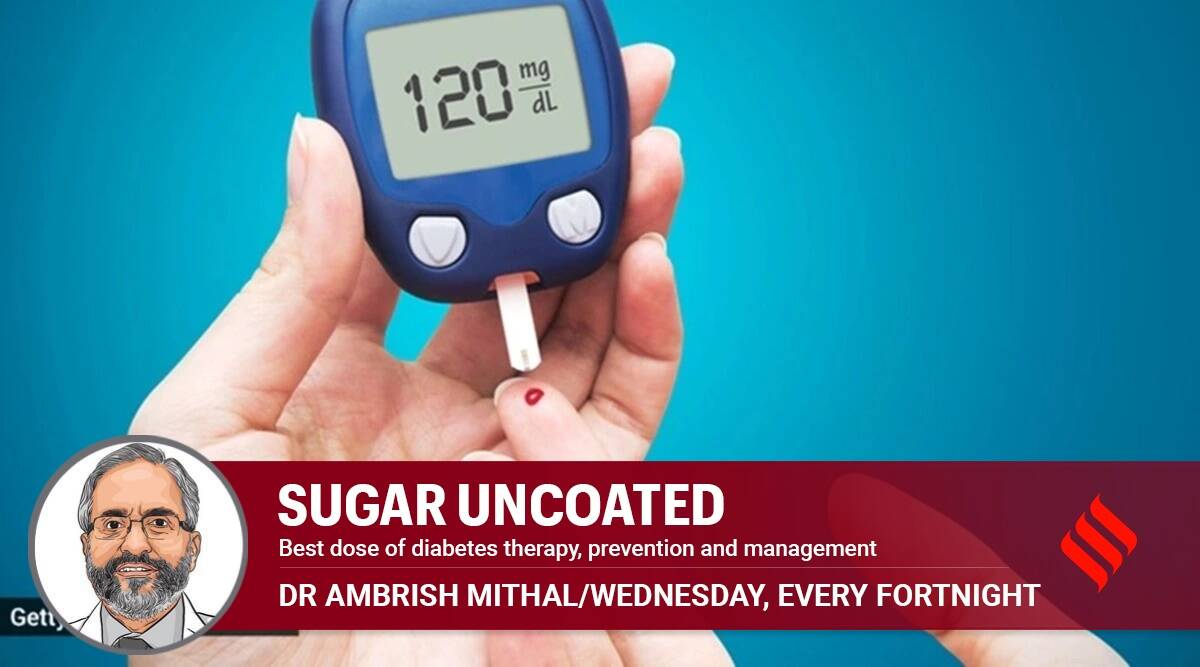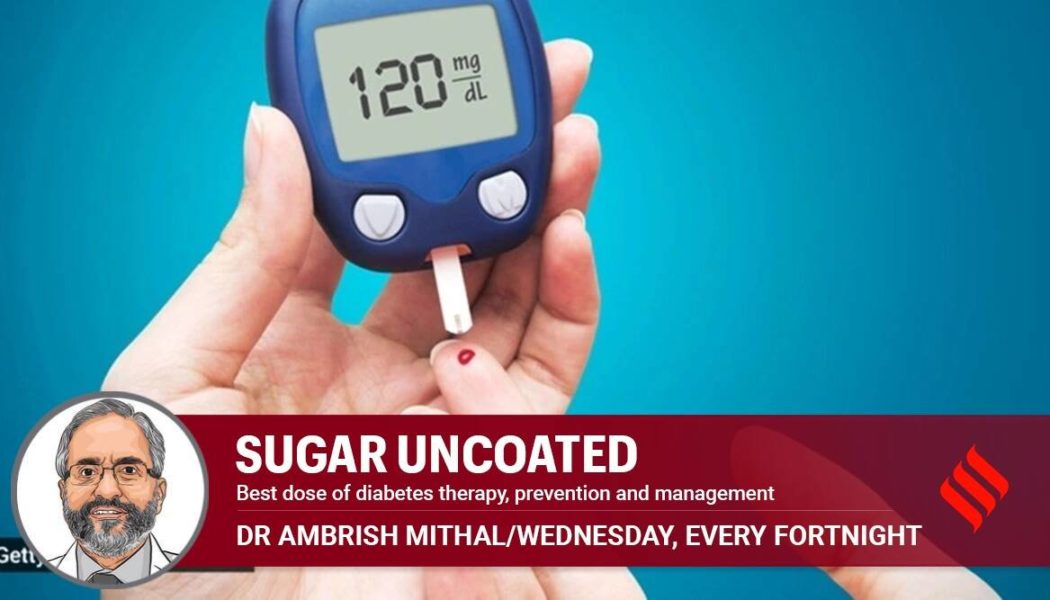
“Doctor, I am doing all that you’ve advised — regular medication, morning walks and a well-balanced diet. But my fasting blood sugar always ranges between 150-160! What should I do?” My patient had, in fact, taken significant steps to improve her lifestyle. Her blood glucose control had improved but fell short of the desirable levels. Her fasting blood glucose was unyielding. Where was she going wrong?
“Did you sleep well last night?” I asked. And bingo, I had my answer. “No doctor, there is a lot of work stress and I haven’t slept well in months!”
Can lack of sleep impact diabetes control? While a lot of attention is given to the role of diet and exercise in controlling diabetes, sleep is rarely discussed in the doctor’s chamber in this context. Sleep disorders are common, particularly in urban Indians. It is estimated that almost one third of city dwellers might be suffering from lack of sleep. Let’s try to understand this rather important relationship between sleep and diabetes.
Impact of sleep deprivation on diabetes
Studies have shown that people who sleep less may have insulin resistance and a greater risk of developing pre- diabetes and diabetes. Young individuals who sleep less than seven hours a day are 40 per cent more likely to develop diabetes than those who sleep well. People who already have diabetes and are sleep-deprived have poorer diabetes control. Lack of sleep stimulates a hormone called ghrelin, which makes you feel hungrier than usual, and decreases leptin, a hormone that signals satiety. This leads to increased food intake, weight gain and subsequent rise in blood glucose levels. Keeping awake also increases night time snacking.
Obstructive sleep apnea (OSA)
Obesity and Type 2 diabetes go hand in hand. OSA is a common problem, especially in overweight diabetic individuals. It impairs sleep and results in multiple night-time awakenings. It leads to an increase in stress hormones, which raises blood glucose levels. Treatment for OSA results in better glucose control.
Impact of diabetes on sleep
Excessive urination: High blood sugar levels lead to an overall increase in the urine output, often resulting in frequent passage of urine throughout the night. Moreover, poorly controlled diabetes can affect the autonomic nervous system, impairing normal bladder and bowel habits, and causing excessive night time passage of urine.
Peripheral neuropathy: Another ill effect of diabetes is a ‘glove and stocking’ neuropathy, which results in pain, tingling and numbness in the hands and feet. Patients with this affliction can find it difficult to fall and stay asleep. While it is irreversible, the symptoms can be managed medically.
Advertisement
Restless legs syndrome: An often overlooked, and under-diagnosed entity, restless leg syndrome refers to an unpleasant sensation in the legs, which results in an irresistible urge to move them. Symptoms can occur during the day but most people with this syndrome find it difficult to fall asleep. While not curable, it too, can be managed with medication.
Hypoglycemia: Low blood sugar levels can keep you awake at night. Individuals who miss meals after taking insulin or certain diabetes medicines (sulfonylureas), those having diarrhoea, vomitting or any other condition that reduces food intake can get low blood sugar (hypoglycemia) attacks at night. Symptoms of hypoglycemia include sweating, uneasiness, anxiety and palpitation. The body counteracts this with an increase in stress hormones, resulting in a higher fasting blood glucose level in the morning. These episodes are potentially dangerous, and urgent modifications in medications/lifestyle may be needed.
Ten tips to improve sleep
Following good sleep hygiene practices is a basic step in trying to improve sleep patterns. Sleep hygiene involves several simple steps outlined below:
Advertisement
1. Going to bed and waking up at the same time daily.
2. Having a nightly routine before going to bed – reading a book or listening to music prior to calling it a day. A warm evening shower may make it easier for some individuals to fall asleep.
3. Sleeping with the lights off and maintaining a comfortable room temperature.
4. Do not use the bed for eating or working – your body needs to be conditioned to think that going to bed means going to sleep.
5. Avoid screens, be it TV, computer and cell phones, for at least 30 minutes before bed time.
6. Avoid distractions (eg phone conversations) prior to sleeping.
Advertisement
7. Avoid heavy alcohol intake at night, as it can affect your breathing during sleep. And while you may fall asleep quickly, it can also wake you up in the middle of the night and affect your sleep quality.
8. No late night large meals. Eating late can cause reflux acidity and higher blood sugar levels overnight.
9. A regular exercise schedule during the day
Advertisement
10. Avoid coffee/ tea or caffeine rich drinks in the evening hours.
Sleep and diabetes make for a two-way street. Sub-optimal diabetes control can worsen sleep and poor sleep quality and quantity can worsen diabetes. Too little, or even too much sleep can hamper metabolic functions of the body. A good first step to ensuring a good night’s sleep is consciously practising sleep hygiene.
Advertisement
An important component of management is recognising any medical condition that may be hampering sleep. For example, sleep apnea is easily missed. A detailed history can help us suspect and order the right test (like polysomnography, also called sleep study).
Going back to our patient, her job stress had made her persistently sleep deprived. It was clearly reflecting in her blood sugar values. Following a detailed discussion, she has found a way to balance her job and her home and is sleeping well. Her blood sugar levels are under control now.
📣 For more lifestyle news, follow us on Instagram | Twitter | Facebook and don’t miss out on the latest updates!









